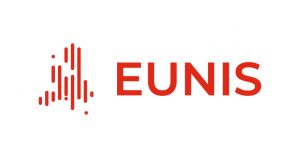SIG Mobility & Digital Credentials
Vision and Scope
The vision of this special interest group is to create a cross initiatives community and foster the dissemination of information and best practices among EUNIS members.
The stakeholders list goes beyond the public sector and academia, as the goal is to facilitate the interoperability between the academic institutions, the public and the private sector while offering citizens state of the art digital services when it comes to managing their student data and diplomas.
The scope of the EUNIS SIG on Mobility and Digital Credentials therefore is on:
- best practices for bridging the gap between current operations aiming for a future state of operations where digitale credentials are the norm
- projects and initiatives that aim to enable mobility programs and all processes involved*
- technologies and frameworks that enable the exchange of university and other formal, non-informal and informal educational credentials (e.g. vocational, secondary, professional) in a privacy preserving way
- what ‘privacy preserving’ means, and the qualification of each solution based on a set of key criteria
- challenges and requirements for universities to embed student mobility services and credential issuing and validation services in their operations
- Risk assessment on what is acceptable within current norms of federations, and what would be desirable.
Goals and Approaches
Convergence of architecture and technical specifications, alignment of workstreams, prevent reinvention of the wheel
The activities of the SIG will:
- Concentrate on the overarching perspective to review if/how we can get to interoperable solutions – e.g. critically point at shortcomings and advice on required changes of direction in current initiatives
- Focus on the institutional perspective to inform and advise on what they can expect, on steps and position they can (best) take to get the services running they need, review what university requirements (still) need to be fulfilled.
- Identify the technical and organisational gaps and build the bridges among different management and technical teams in a supplementary way to other steering committees at EU’s or member’s state level.
- Stimulate and facilitate discussions and activity towards the convergence of the architecture, the technical specifications and the agreement on common, yet inclusive and flexible, EUNIS guidelines for the community.
- Advise EUNIS members and other bodies about the direction of convergence re architecture and technical specifications and realisation of a working mobility and digital credentials eco-system.
Be an information disseminator and incubator
Organise wiki pages and surveys in the area of mobility and digital credentials
- to ease collaboration and sharing of knowledge,
- to provide an up-to-date landscape of the ecosystem that encompasses projects, solutions providers, software and deployments
Organise workshops around the aggregated know-how and ideas
- to discuss ideas and and let these mature
- to (re)consider and refine strategies and approaches
- to address mobility and digital credential issues from the university and/or university alliance perspective
Produce reflective reviews as well as guiding documents
Areas eligible to cover:
- Electronic transfer of achievement records between higher education institutions in Europe and beyond
- Online learning agreements
- Grade conversion systems
- Student identity related frameworks (including non-foundational ID initiatives), tools to services aimed at mobility and credential services.
- Exchangeable data and academic information from students in exchange programs
- Architecture and technical specifications of data models and exchange formats
- Definition and adoption of the common information models and standards for becoming interoperable on the business information process (like ELM)
- Governance, legal, technical and semantic interoperability of the identified solutions, including the desired organisation level trust (as contrasted to technical trust)
- Legislation and the administrative frameworks that govern digital diplomas and other educational credentials
- Existing and working good practices that respond to legal and business requirements
- Citizens and member states access to technology and digital development
- The infrastructure needed both local to the university and nationally/regionally to meet future need for handling credentials and accreditation in a lifelong perspective.
*) some examples of projects are on https://eunis.org/task-forces/student-mobility-task-force/

